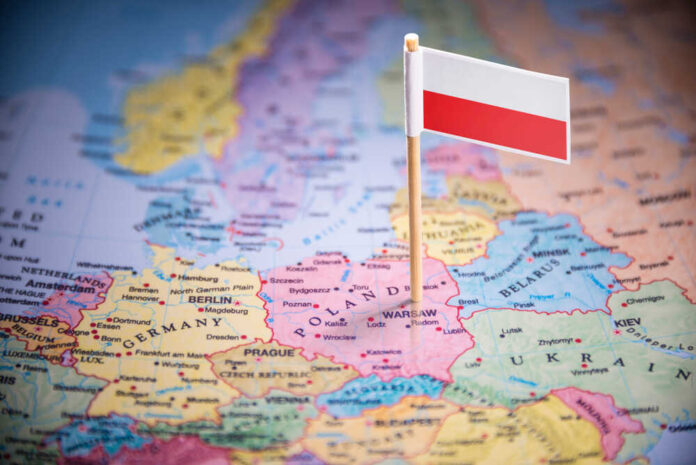
Russia is threatening to make Poland and the Baltic states “the first to suffer” if NATO escalates tensions further, apparently forgetting they’re the ones who invaded Ukraine and started this whole mess.
At a Glance
- Russian spy chief Sergey Naryshkin warned Poland and Baltic states would be “first to suffer” in any NATO-Russia conflict
- Naryshkin accused NATO of causing the Ukraine war while conveniently ignoring Russia’s actual invasion
- Poland and Baltic states are strengthening defenses, including withdrawing from anti-mine treaties to protect their borders
- European nations are preparing for potential large-scale conflict with Russia that some predict could occur around 2029
- Russia called Poland “aggressive” while simultaneously threatening its destruction – classic Putin playbook
Russia’s Latest Threats: Classic Bully Behavior
In yet another demonstration of Russia’s unhinged foreign policy approach, the head of Russia’s Foreign Intelligence Service has singled out Poland and the Baltic states for destruction if NATO doesn’t back down. This comes straight from Sergey Naryshkin, Putin’s chief spy and apparent designated international threatener, who made these remarks after meeting with Belarus dictator Alexander Lukashenko. Nothing says “we’re the good guys” quite like threatening to annihilate your neighbors while complaining about their “aggressiveness” for merely wanting to defend themselves.
Naryshkin specifically stated that “the first to suffer will be the bearers of such ideas among the political circles of Poland and the Baltic countries” in the event of NATO “aggression” against Russia or Belarus. Apparently, in the Kremlin’s twisted logic, preparing to defend yourself against a country actively invading one of your neighbors constitutes “aggression.” It’s like a burglar complaining that you installed a security system because it hurts their feelings and makes them feel untrusted.
NATO’s Eastern Flank Prepares for the Worst
You know things are serious when countries start withdrawing from anti-mine treaties. Estonia, Latvia, Lithuania, and Poland have all withdrawn from the Ottawa Convention, which prohibits anti-personnel mines, citing increased military threats from Russia. When peaceful nations decide they need landmines again, it’s a pretty clear sign they’re genuinely concerned about invasion. But according to Russia, this defensive preparation is just more evidence of “aggression” – as if these small nations are somehow plotting to invade the Russian behemoth, rather than desperately trying to avoid becoming the next Ukraine.
“They should understand, but do not yet understand, that in the event of aggression by the North Atlantic Alliance against (Russia and Belarus), damage will be done, of course, to the entire NATO bloc, but to a greater extent, the first to suffer will be the bearers of such ideas among the political circles of Poland and the Baltic countries”
Latvia, Lithuania, and Estonia are already building a joint defense line on their borders with Russia, while Germany is deploying troops to Lithuania. Norway is preparing mass evacuation drills and hosting NATO exercises. These nations aren’t taking any chances, and who can blame them? When your neighbor is actively engaged in territorial conquest and threatening you with destruction for simply trying to protect yourself, prudence dictates preparation. Only in Putin’s Russia is self-defense considered an act of aggression.
The Kremlin’s Alternate Reality
In perhaps the most laughable aspect of Russia’s narrative, Naryshkin had the gall to blame NATO for Russia’s war against Ukraine. Yes, you read that correctly – according to the Kremlin, it’s NATO’s fault that Russian tanks rolled across the Ukrainian border. This kind of reality-bending propaganda might work on Russia’s state-controlled media, but it’s insulting to anyone with access to actual facts and a functioning frontal lobe. It’s like watching a schoolyard bully punch a kid and then cry to the teacher that the other kid’s face hurt his hand.
“(Poland and the Baltic countries) just can’t understand that it was the build-up of military activity on the borders of Russia and Belarus that became one of the factors, one of the reasons for the current large, acute, and very dangerous crisis on the European continent”
Western intelligence agencies are warning of a possible large-scale war in Europe within the next five years due to Russia’s continued aggression. The EU is reportedly preparing for potential conflict around 2029. Meanwhile, Ukrainian President Volodymyr Zelensky has repeatedly warned that if Russia isn’t stopped in Ukraine, NATO territory could be next. Given Russia’s explicit threats against Poland and the Baltics, it seems Zelensky’s concerns aren’t just theoretical but directly confirmed by Russia’s own intelligence chief.
America’s Role and Responsibility
While Europe prepares for potential conflict, some voices in American politics have suggested withdrawing from NATO altogether or pulling troops from Eastern Europe. This kind of isolationist thinking plays directly into Putin’s hands. Those who think abandoning our allies to Russian aggression would make America safer are dangerously naive. History has taught us repeatedly that appeasing territorial expansionists only emboldens them and leads to larger, more devastating conflicts. The Constitution doesn’t just charge us with defending American soil – it empowers us to provide for the common defense, which includes maintaining the alliances that prevent global instability.
For all of Russia’s bluster and threats, the reality remains that NATO’s combined strength dwarfs Russia’s military capabilities. Putin knows this, which is why his strategy relies on intimidation, division, and the hope that Western resolve will crumble. The best deterrent against Russian aggression isn’t appeasement – it’s a strong, unified, and prepared NATO alliance that leaves no doubt about the consequences of further territorial ambitions. Poland and the Baltics understand this reality all too well, having lived under Soviet domination within living memory. Their preparations aren’t aggression – they’re prudence in the face of a neighbor with a documented history of invasion.

























